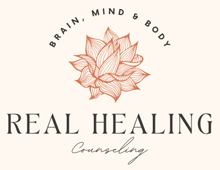In this post, we are going to talk about sex. Specifically what are the characteristics of healthy sexuality and of unhealthy (or addictive) sexuality We are also going to talk about what can happen when sex is not talked about growing up.
I invite you to experience this post experientially. Meaning pay attention to what you notice in your body as you read this.
I invite you to take out a pen and paper and journal your answers, with honesty, to any questions I ask throughout this post.
-
What were you taught about sex and sexuality?
-
How were you taught about sex and sexuality?
-
What messages did you get about sex and sexuality? (from your family, the media, friends, your community, etc.)
-
How do you feel about your sexuality?
-
What and how were you taught about your genitals?
-
How do you feel about your genitals?
-
What turns you on? How do you feel about what turns you on?
-
How do you define sexual health?
Go back and read your answers. What do you notice in your body? What do you notice in general? What sticks out to you?
Now we are going to touch on characteristics of healthy sex and sexuality and characteristics of unhealthy and/or addictive sex and sexuality.
Unhealthy (or addictive) sex and sexuality feels shameful, secretive, and can require a “double life”. It is not in line with our values. It can be stolen or exploitative and use power or conquest. It is self-destructive, dangerous and uses fear for excitement. It can be used to disconnect from Self and to medicate and kill pain. It is perfectionist and feeds into a world of unreality. It can be a reenactment of childhood trauma or abuse.
Healthy sex and sexuality contributes to healthy self-esteem. It is an authentic, embodied, mutual, intimate experience between consenting adults. It can enhances meaning and excitement comes from shared vulnerability. It is victimless, safe, and of integrity. The needs and wants of partner’s are considered and honored. It is imperfect, playful, enjoyable. Of course, healthy sexuality can bring about its own set of difficulties.
The definition of sexuality according to the World Association of Sexual Health:
-
Sexuality is a central aspect of being human throughout life It encompasses sex, gender identities and roles, sexual orientation, eroticism, pleasure, intimacy and reproduction.
-
Sexuality is experienced and expressed in thoughts, fantasies, desires, beliefs, attitudes, values, behaviors, practices, roles and relationships.
-
Sexuality can include all of these dimensions, not all of them are always experienced or expressed.
-
Sexuality is influenced by the interaction of biological, psychological, social, economic, political, cultural, ethical, legal, historical, and religious and spiritual factors.
-
Sexual health is a state of physical, emotional, mental and social well-being related to sexuality; it is not merely the absence of disease, dysfunction, or infirmity.
-
Sexual health requires a positive and respectful approach to sexuality and sexual relationships, as well as the possibility of having pleasurable and safe sexual experiences, free of coercion, discrimination and violence.
-
For sexual health to be attained and maintained, the sexual rights of all persons must be respected, protected and fulfilled
What can happen when kids and teens do not receive age appropriate sex education? For kids and teens, the silence around sex (education and development) in and of itself can contain shameful undertones.
Kids need age appropriate terminology of their genitalia. They need language to protect themselves, set healthy boundaries, and to feel safe enough sharing with a parent if they have been violated in any way. This also aids in body ownership.. i.e. Knowing that this is my body, it is not your body. You are not allowed to touch my body without my consent. I am not allowed to touch your body without consent.
Kids and teens who experience body ownership can grow into adults who have an increased understanding of their physical and sexual boundary and have a healthier relationship with their sexual anatomy.
Teenagers especially deserve to have age appropriate and safe conversations about what happens during puberty. A lack of healthy dialogue around the very normal and healthy sexual development that happens around this time can be detrimental and shameful. There are lots of bodily and hormonal changes, an increase in sexual desire and curiosity. This brings about its own set of challenges. If a kid received messages that sex is bad and he starts to experience urges for sexual pleasure, he may make up that he is bad and thus feeling shame around his own body and his own curiosities and desires when in reality, they are very normal and a healthy part of development.
Shameful messages about sex and sexuality are contributing factors to sex addiction and/or sexual anorexia as well as the inability to set and respect the healthy boundaries of themselves and others. It can also contribute to increase in teen pregnancies and sexually transmitted diseases. It can also contribute to shame around one’s body (and parts), sexual pleasure, sexual desire, even in healthy consensual relationships in adulthood.
“During adolescence, major biological as well as psychological developments take place. Development of sexuality is an important bio-psycho-social development, which takes an adult shape during this period. During adolescence, an individual’s thought, perception as well as response gets colored sexually. Puberty is an important landmark of sexuality development that occurs in the adolescence…Adolescents face a great challenge in their early adolescence. Many critical biological, as well as psychological changes, occur during this phase for which many adolescents are not prepared enough to cope with, which often puts them under stress.”
Kar SK, Choudhury A, Singh AP. Understanding normal development of adolescent sexuality: A bumpy ride. J Hum Reprod Sci. 2015;8(2):70-74. doi:10.4103/0974-1208.158594
So there you have it, folks. We talked about sex. We discussed healthy sexuality and unhealthy sexuality as well as the potential consequences when a lack of age appropriate sex education and support is provided.

